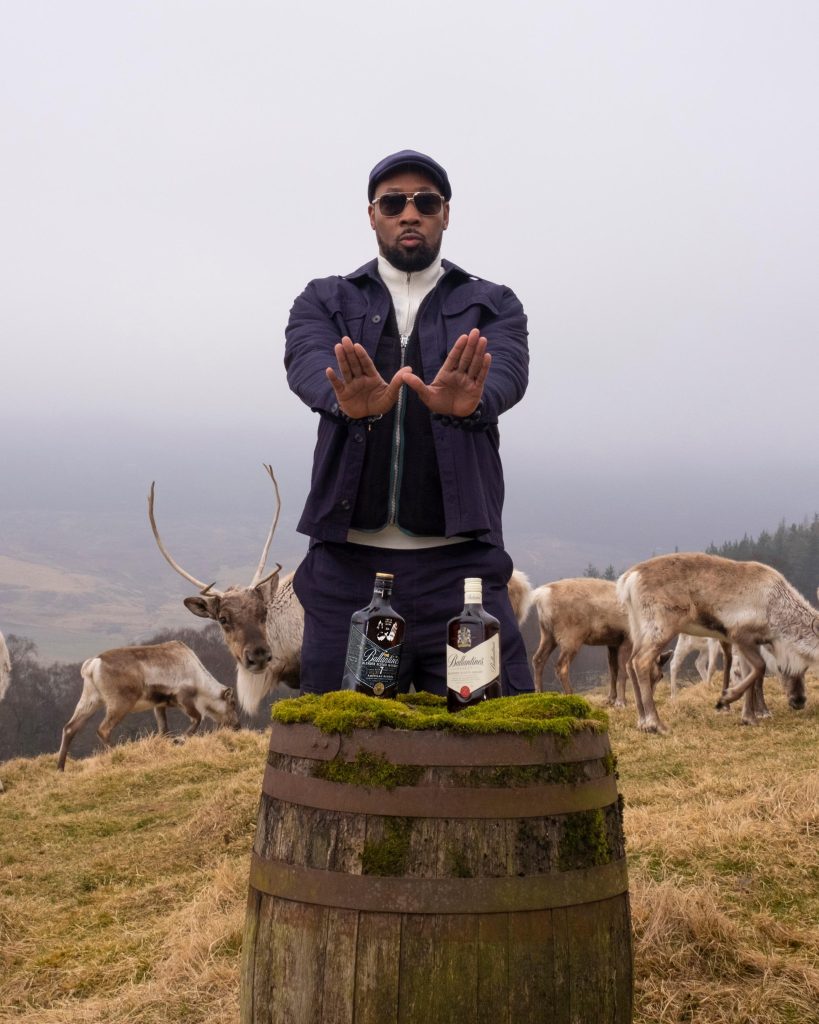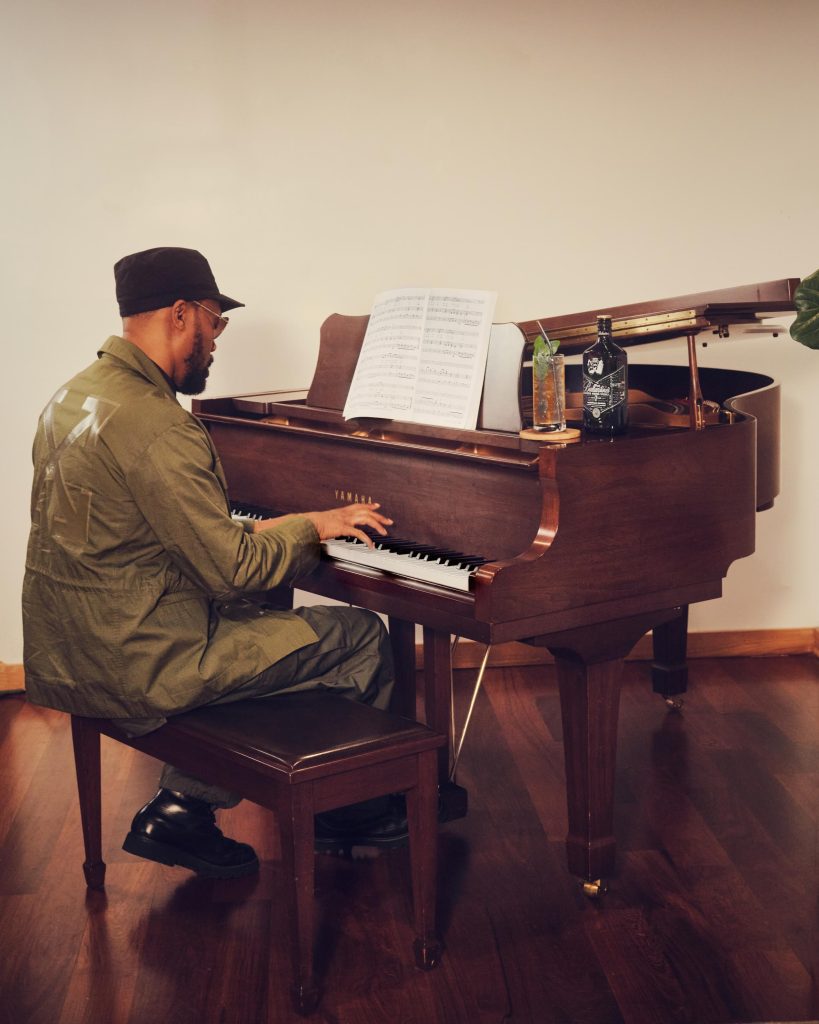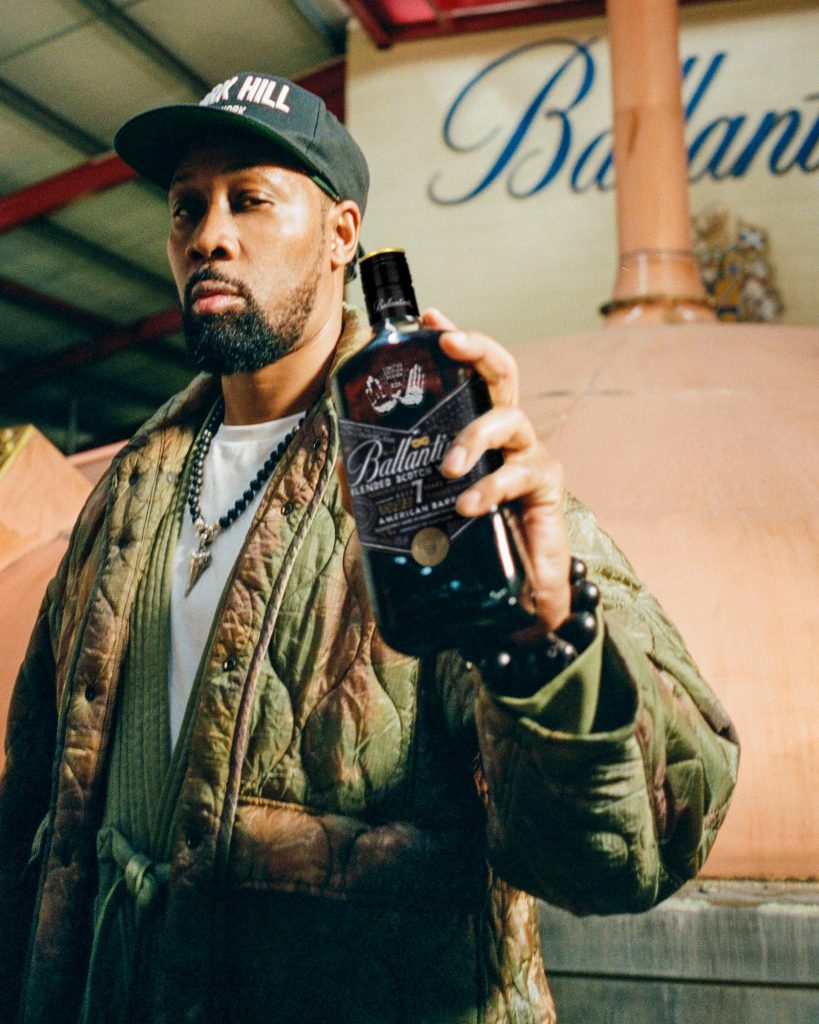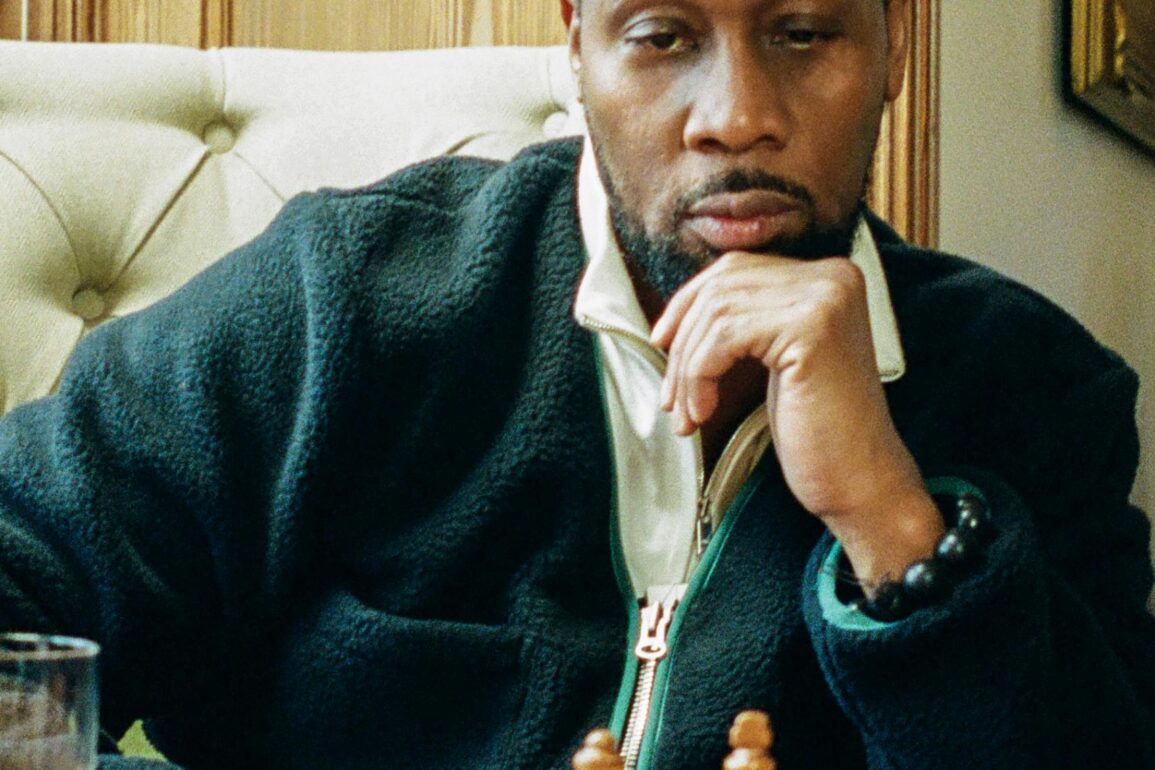The legendary RZA hardly needs an introduction, but we’re going to give you one anyway. The Wu-Tang Clan mastermind burst out on the scene in the 90s with his New York-born musical collective. With a hefty discography that not many artists can even dream to compete with, from Enter The Wu-Tang (36 Chambers) to his solo work like Birth of a Prince.
As easily as he could have, RZA did not fly under the radar as just another great of the past, continuing his living legacy not only through music, but also through culturally-relevant ventures. The whiskey brand Ballantine’s has been a go-to for RZA, especially with this recent collaborative release of the Ballantine’s 7 American Barrel x RZA Limited Edition bottle, a culmination of their long-term partnership that took the artist up to the Scottish highlands for a campaign shoot he told us all about.
To commemorate this launch, we caught up with RZA for one hell of a conversation on all things Ballantine’s, his work with the cult favourite Japanese brand NEIGHBORHOOD, looking back on his own career, what new artists should be striving for in his eyes, and, of course, how he feels about Rihanna and A$AP Rocky naming their kid after him – spoiler alert, RZA drops some heavy wisdom.

Tell me a little bit about your partnership with Ballantine’s and NEIGHBORHOOD. What keeps you coming?
In the beginning when we decided to campaign together and to share our vibe of ‘stay true and keep it real,’ we knew it was going to be multiple things we wanted to do together. NEIGHBORHOOD, of course being one that is also very authentic to the vibe that we brang.
NEIGHBORHOOD, they stand out in the fashion world. They’re taking their own chances, their own risks, making their own identity. They’re not trying to emulate everyone else. But, at the end of the day, they also blended certain swags together, [like] Ballentine’s blends certain whiskeys together. They all know how to blend culture, music, sound and arts together. So there’s a synergy, a resemblance to what we do.
Once again, we see you starring in their latest campaign. What is your favourite aspect of shooting a campaign like this?
If i could take a step back my favourite part of the entire campaign was my trip to Scotland, going up to the highlands and feeding the reindeers and making a beat. I was making music on the side of the mountain, with reindeers around me, playing beats. I never expected that in my life.
When we did the NEIGHBOURHOOD shoot in California, having a great stylist on deck and a great location for the photos. It’s something cool when you are able to work in your own home vibe, in your own home town, and still bring something that feels like it’s from elsewhere. When we did the LA shoot, that’s what it was. Even though we were in LA, the vibe we brought felt like you stepped out of LA for a moment. We stepped into our own pocket.
NEIGHBORHOOD is one of those brands that popped off in the wave of the 80s and 90s Japanese streetwear labels, which became globally influential. What would you attribute its success to?
First of all, being originators is important, right? Street brands, before it was called streetwear, it was just menswear. It wasn’t being geared towards youth and youth culture and counterculture. We have a few brands, Tommy Hilfiger, Ralph Lauren, but they were making menswear that we had to buy double XLs or triple XLs to try to make them streetwear.
So when a company like NEIGHBOURHOOD steps up on the scene and it’s mixing the culture – not just skateboarding or surfing, hip hop or music and all that – when a company steps up and dedicates itself to a neglected consumer, you end up getting a nice foothold. Once you got a good foothold, you just gotta continue to build on that. Once that foundation is strong, and you are able to put your feet in the cement, you know you gotta keep building it.
I think [NEIGHBORHOOD] have been able to do that. They’ve been constantly finding ways to express the complication and simplicity of what streetwear can be. Sometimes, it’s a simple jacket with cool writing or sometimes it’s a simple book bag – things of that nature. They’ve been able to originate but also adapt as time went on. I think I do the same as an artist as well.
From Wu-Tang to your solo career, you’ve been about in hip-hop. What would you attribute your own success to?
My original success is from determination. I was determined to have my sound, the music of me and my Wu-Tang brothers, the vibe that we was living in New York, Staten Island, this forgotten borough. We didn’t want to be forgotten. We wanted to be remembered, and we wanted to show our techniques, our skill set. We entered it how a Samurai would enter, or Kung-Fu warrior. We came in to chop off heads, as we would say in a verbal, lyrical way.
I think that our skill set allowed us to propel, to get a good footing in the hip-hop industry. And then, our love for the culture, our love for the music, our love for hip-hop, that permeates through me every day, and any day. I don’t care if I’m making films, I don’t care if you see me doing a campaign with Ballantine’s, you see that the hip-hop essence in me is always present. Being a child and a man that has that energy, in a world that is enamoured by that energy and intrigued by it, I think it lead to my success and leads to my continuous success. It’s intriguing what this hip-hop culture brings and it’s intriguing my angle of being able to amalgamate hip-hop culture with other cultures, and re-define them.

Since the Wu-Tang days, we’ve seen hip-hop evolve massively and grow infinitely with its participating musicians. What is your favourite era or sub-genre of hip-hop?
My favourite era is kind of a blend. I think from 1986 to 1989, hip-hop was really definitive and really grabbing [a] great foothold and its whole foundation of being, not just part of street culture, but part of music culture and part of albums that could sell, platinum and all of this. Then, it changed and mixed with pop. But then I gotta say the 90s also became a favourite era because of the versatility that hip-hop shows. [That] was important.
Those were my favourite eras and I think my favourite sub-genre has to be Afrobeats. It’s such a joy for me to see what we all thought was – they call it the ‘Third World’ – [where] people were incapable of expressing. The allusion we had of Africa made us not comprehend, or be aware, of all the strength, growth, and value they bring to world culture. But it’s exciting for me to see that they also grew up on hip-hop and now they’re translating it to match their country and their vibe.
Tell us, what does a new-age hip hop artist need to do or have to get the RZA seal of approval? What do you look for in new artists – whether to listen to or to work with?
For me, if it’s an MC you need to have lyrical content and lyrical substance. If it’s a producer, [they] better be doing something new to the music that hasn’t been done. And even if [they] want to pay homage, like how sometimes producers take a great beat from an old song, as long as they’re adding on to it, then I’m interested in it. I’m interested in the growth and I’m very interested in the skillset.
I’m disappointed, not personally but artistically, when I see someone reach high levels of success in a genre, but don’t really have the skill set. Maybe they’re popular because of their image or because of a one-hit song that puts them on a global platform, and then all of a sudden, we’re forced to consume everything they put out, because they have a machine behind them. I love when the talent is real and raw. Then, it’s also accompanied by the professionalism and the artistry it takes to be a successful global artist. I look for those things.

Are there any particular artists you’ve got your eye on and are excited to see evolve?
I’ve seen some great evolution recently. You look at 21 Savage. He came in and we didn’t really understand it. He came in taking that rawness of taking London and Atlanta energy, and then evolved to making songs with that lyrical energy, and without Drake’s support.
This is probably unexpected from me but even Lil Yachty. [He] started as an artist that seemed pop-y and seemed like he wasn’t going to take the lyrical content of hip-hop seriously. And now, with his new music, you hear that he’s evolved.
There’s an artist named H.E.R. who, to me, is a genre-breaking artist who I’m just amazed by her various skills, not only being a vocalist, a songwriter, a lyricist, but also playing multiple instruments with finesse. That’s just to name a couple.
Our readers need to know: what was your reaction after finding out Rihanna and A$AP Rocky named their first-born after you?
My reaction was just smiles and honour. [They’re] such a beautiful family. What an honour to have RZA be a name they bless their child with. I always say, RZA’s not a name but a title. The letter ‘R’ in the acronym RZA stands for ‘ruler.’ And not just ‘ruler’ like a king or ruler of this country, but a ruler is a tool we use to measure things. And this young man, as he grows into a young man, if he takes the time to measure before he acts, and looks at his whole name, he will have a lot of great days in this world. So, it was a blessing and an honour.
More on Culted
See: That Mexican OT talks new album & thanks his fans
See: Jordy on collaboration through conversation
This post was originally published on this site be sure to check out more of their content.







